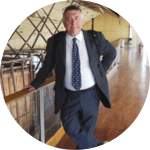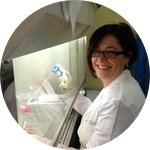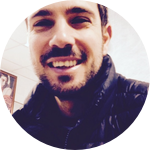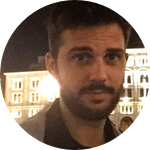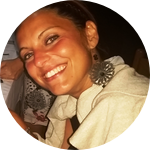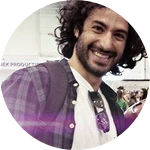About This Project
Exosomes are cell derived nanovesicles found in all body fluids that mediate intercellular communication and are currently viewed as promising biomarkers for health and disease. Obesity is a pandemic problem and many efforts have been dedicated for cure with scarce success. Cold exposure induces "non-shivering" thermogenesis, which dissipates energy and produces heat in some fat depots. In this project we intend to evaluate cold-released exosomes as therapeutic tool to fight obesity.
Ask the Scientists
Join The DiscussionWhat is the context of this research?
Cells of fat tissue (adipocytes) are a heterogeneous cellular population with peculiar functional roles. White adipocytes fulfill a role of energetic rheostat in the body, whereas beige and brown adipocytes mainly participate in thermogenesis process. Experimental tools such as cold exposure allowed the identification of several circulating mediators igniting non-shivering thermogenesis (http://www.sciencedirect.com/science/article/pii/S1550413114000060). Circulating exosomes are now recognized to play a leading role in promoting tissue adaptive responses in several pathophysiological conditions (http://www.ncbi.nlm.nih.gov/pubmed/19675137). However, no evidence exists about their possible changes and active involvement in favoring cold tolerance.
What is the significance of this project?
Clinically identified as a pathological fat mass expansion, obesity is one of today’s most blatantly visible public health problems. An escalating global epidemic of obesity is taking over many parts of the world and negatively impacts on socioeconomic costs. Unfortunately, although several drugs have been screened to fight obesity, this has only revealed limited success (http://www.ncbi.nlm.nih.gov/pmc/articles/PMC342445...). In relation to this, new treatments for obesity that are both better tolerated and more efficacious are urgently needed. The identification of exosomes as vehicle of helpful mediators could open new routes in drug discovery or finding more efficient molecular targets to fight obesity.
What are the goals of the project?
Our hypothesis is that during stressful conditions, such as cold exposure, blood exosomes vehicle thermogenic messages to adipose tissues promoting energy dissipation. The goal of this study is to isolate an exosomal pool that enhances adipocyte metabolism. To this end, exosomes will be isolated from serum of cold-exposed mice and then will be used to treat white, beige and brown adipocytes. Metabolic profile of adipocytes will be analyzed. The findings obtained might be a useful platform to map exosomal messages improving body's metabolism and possibly fight obesity.
Budget
We currently have white, beige and brown adipocytes and materials to differentiate and metabolically evaluate these cells, but other important supplies are necessary. In particular, to perform this project, we need a minimal mouse colony to collect blood samples (power analysis indicate the need of at least n=4 control mice and n=4 cold-exposed mice/each time point). A total exosome isolation kit will be used to collect the exosomal pool from mice sera. Purified exosomes will be stained with a spefic fluorescent probe (DiLC12 perchlorate). Finally, differentiated adipocytes will be treated with exosome-depleted foetal bovine serum enriched with the isolated and quantified exosomes.
Endorsed by
Meet the Team
Affiliates
Affiliates
Affiliates
Daniele Lettieri Barbato
I am a Post-doc Researcher at University of Rome “Tor Vergata”.
My general interest is in studying mitochondrial adaptive responses of fat
cells to environmental stressors (nutrient restriction/overload or cold
exposure). The goals of my research consist in identifying key mechanisms that link improvement of adipocytes metabolism to healthy aging.
Katia Aquilano
In the last years my research activity is focused on developing more effective strategies that might improve body metabolism and increase energy expenditure to overcome age-related metabolic diseases, mainly obesity and diabetes.
Rolando Vegliante
Brand-new Ph.D. ... It seems like yesterday when I was unable to spell "deoxyribonucleic acid" !!! Currently, my interest is in cell biology, with particular regard to metabolism and signaling pathways regulating processes such as autophagy and cell death.
Fabiana D'Angelo
I am a student in Molecular and Cell Biology at University of Rome "Tor Vergata". I have spent over a year working in the field of adipose tissue biology. Now I am dissecting the impact of maternal high fat diet on subcutaneous adipose tissue adaptations in offspring mice. I plan on attending medical school next year, so I am excited to learn more about the mechanisms that govern health and longevity.
Francesca Sciarretta
I am a student in Molecular and Cell Biology at University of Rome "Tor Vergata" and I am currently studying the effects of low protein diet on adipose tissue responses. I look forward to learning about the molecular mechanisms that modulate thermogenesis in adipose tissue. Thank you for your support!
Luca Di Leo
PhD student in Cellular and Molecular Biology.
In the last years my research has been focused on metabolic adaptation of cells to environmental stressors, such as nutrient deprivation (i.e. starvation), with particular attention to reactive oxygen species (ROS), ROS mediated response, autophagy, mitophagy, mitochondrial turnover, dynamics and metabolism, lipid metabolism, lipophagy glucose metabolism, cell death and apoptosis.
Giuseppe Tatulli
I am a Post-doc Researcher in Human Nutrition Science and I am now working on the beneficial effects of alternate day fasting: eat and not to eat, this is my slogan!
Flavia Tortolici
I am a student in Molecular and Cell Biology at University of Rome "Tor Vergata". My research is focused on the study of molecular pathways governing skeletal muscle adaptations to environmental stressor mainly physical exercise and fasting.
Marina Cerreto
As the nerd must say I am, I fell in love with Science when I was a child.
Today my experience is in cellular and molecular biology is focused in radiation biology and microvesicles field.
Project Backers
- 49Backers
- 103%Funded
- $3,013Total Donations
- $61.49Average Donation

